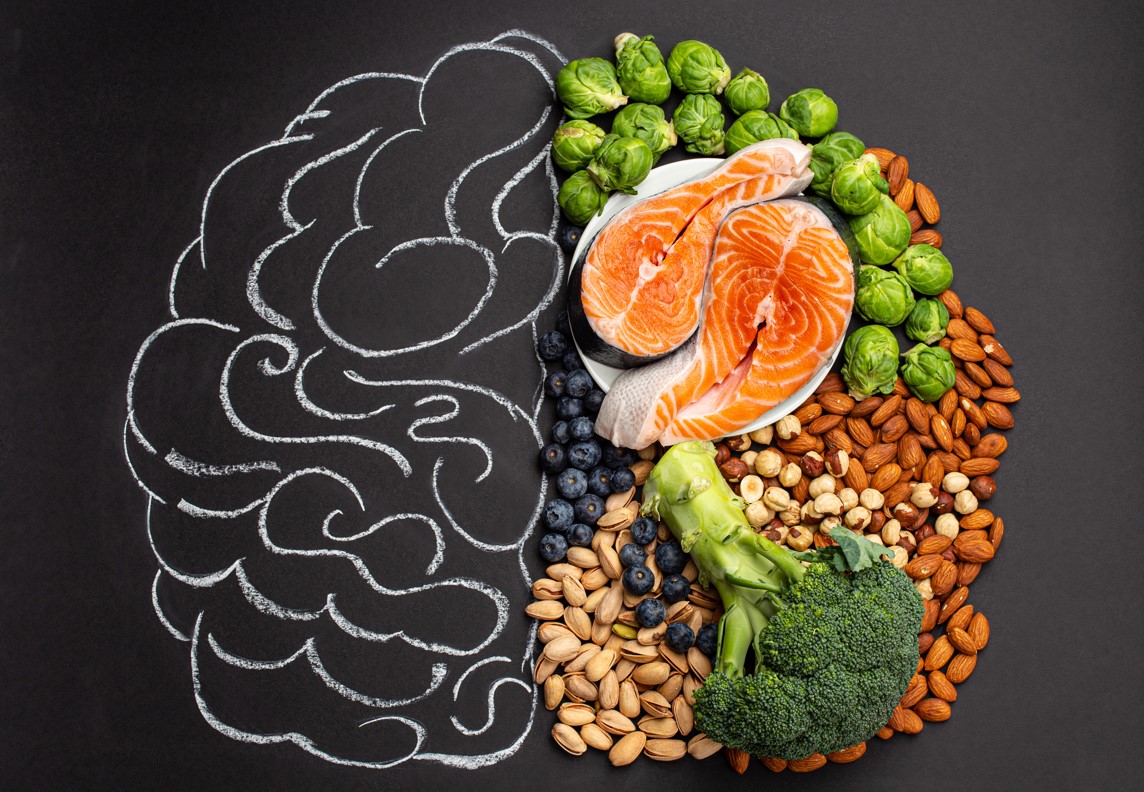Cognitive health is a critical aspect of overall well-being, particularly as individuals age. Studies consistently show that engaging in mentally stimulating activities, maintaining a balanced diet, regular physical exercise, quality sleep, and social interactions significantly impact cognitive function.

Understanding Cognitive Health
Defining Cognitive Health
Cognitive health refers to the overall well-being and functionality of mental processes, encompassing various abilities such as memory, problem-solving, attention, language, and reasoning. It involves how an individual perceives, thinks, understands, and interacts with the world around them.
Importance of Cognitive Health
Maintaining cognitive health is crucial as it directly impacts one’s quality of life, independence, and ability to perform daily tasks. Cognitive decline, which can occur naturally with age or due to certain conditions, can significantly affect an individual’s autonomy and overall well-being.
The Significance:
- Independence: Cognitive health enables individuals to make informed decisions, manage finances, and carry out daily activities independently.
- Social Interaction: It contributes to effective communication and fosters better relationships with family and friends, enhancing overall social interactions and engagement.
- Quality of Life: A sound cognitive state positively influences mental wellness, contributing to an improved quality of life and a sense of fulfillment.
Factors Influencing Cognitive Health:
- Lifestyle Choices: Diet, exercise, and mental stimulation play pivotal roles in preserving cognitive abilities.
- Genetics and Environment: Both genetic predispositions and environmental factors can influence cognitive health.
- Medical Conditions: Certain medical conditions, such as Alzheimer’s disease and other forms of dementia, directly impact cognitive functions.
Strategies for Maintaining Cognitive Health:
- Cognitive Exercises: Engaging in activities that challenge the brain, such as puzzles, learning new skills, or playing musical instruments, can help maintain cognitive abilities.
- Healthy Lifestyle: Regular physical exercise, a balanced diet rich in antioxidants and omega-3 fatty acids, and adequate sleep contribute to cognitive well-being.
- Continuous Learning: Lifelong learning and staying mentally active through education or hobbies can stimulate cognitive functions and improve overall brain health.

Tip #1: Prioritize Mental Stimulation
Maintaining cognitive agility hinges significantly on regular engagement in activities that challenge and stimulate the mind. Scientific research, such as the longitudinal study conducted by Wilson et al. (2013) published in the New England Journal of Medicine, underscores the link between mental stimulation and a reduced risk of cognitive decline.
Importance of Mental Challenges:
Numerous cognitive activities, including puzzles, crosswords, learning new languages, playing musical instruments, and engaging in strategic games like chess or Sudoku, stimulate various regions of the brain. These activities promote neuroplasticity—the brain’s ability to reorganize and form new neural connections.
Cognitive Reserve and Neurogenesis:
Experts like Dr. Yaakov Stern, a professor at Columbia University’s Taub Institute for Research on Alzheimer’s Disease and the Aging Brain, emphasize the concept of cognitive reserve. Engaging in mentally stimulating tasks helps build this reserve, potentially delaying the onset of cognitive decline. Additionally, research by Dr. Fred Gage and his team at the Salk Institute highlights how mental stimulation triggers neurogenesis, the birth of new neurons, which contributes to cognitive resilience.
Real-Life Applications:
For instance, learning a new skill or hobby not only provides enjoyment but also stimulates brain regions associated with memory, attention, and executive function. Consider activities like painting, gardening, or even digital pursuits such as coding or graphic design, all of which challenge the brain in unique ways.
- Learning a New Skill:
Imagine taking up a new skill, like learning to play chess. Chess involves strategic thinking, pattern recognition, and forward planning. Studies, such as the one conducted by the University of California, Irvine, indicate that regular chess playing can improve cognitive abilities, particularly in older adults, by challenging memory, problem-solving, and critical thinking skills.
- Engaging in Creative Pursuits:
Activities like painting or drawing tap into the brain’s artistic and creative aspects. Research published in Frontiers in Human Neuroscience suggests that engaging in visual arts not only stimulates creativity but also enhances cognitive abilities by activating different regions of the brain involved in imagination and spatial reasoning.
- Brain Training Apps and Games:
Apps and games designed specifically for cognitive training, like Lumosity or Elevate, offer various challenges targeting memory, attention, and problem-solving skills. A study in PLOS Medicine found that consistent use of brain-training apps improved participants’ cognitive function across different domains.
- Embracing Multilingualism:
Learning a new language, such as Spanish or Mandarin, exercises the brain’s language centers. Studies, like those conducted by Dr. Thomas Bak at the University of Edinburgh, illustrate that bilingual individuals tend to have improved executive functions, enhanced multitasking abilities, and delayed cognitive decline compared to monolinguals.
Real-Life Impact and Long-Term Benefits:
Each of these examples highlights how engaging in diverse mental challenges offers tangible benefits beyond the specific activity. From enhancing problem-solving skills through chess to boosting creative thinking via art, these activities stimulate various cognitive domains, contributing to a more resilient and adaptable brain.
Tip #2: Engage in Lifelong Learning
The Significance of Lifelong Learning in Mental Well-being
Continual learning isn’t just a phase; it’s a lifelong commitment to acquiring new knowledge, skills, and experiences. As individuals age, engaging in learning pursuits becomes increasingly crucial for maintaining cognitive sharpness and overall mental well-being.
Embracing Continuous Learning Across Diverse Avenues:
- Formal Education Throughout Life:
Lifelong learning encompasses formal education endeavors such as college courses or professional certifications. Studies by the OECD reveal that ongoing education and training are associated with higher levels of cognitive abilities and a reduced risk of cognitive decline in later years.
- Online Learning Platforms and Skill Enhancement:
Accessible online platforms like Coursera, Khan Academy, or LinkedIn Learning offer a plethora of courses catering to diverse interests. A survey conducted by Pew Research Center found that 87% of online learners reported positive impacts on their career growth and mental stimulation through such platforms.
- Participation in Community Workshops and Seminars:
Active engagement in workshops, seminars, or community education programs on various topics fosters continuous cognitive engagement. Research published by the AARP suggests that involvement in community educational initiatives correlates with better mental health and cognitive function in older adults.
- Pursuing Curiosity-driven Hobbies:
Exploring hobbies or interests, whether gardening, stargazing, or delving into historical studies, nurtures ongoing learning. The Alzheimer’s Association notes that regular engagement in hobbies involving learning new skills or knowledge is linked to a decreased risk of cognitive decline.
Lifelong learning, spanning diverse avenues like formal education, online courses, community workshops, and hobby exploration, stands as a cornerstone for sustaining cognitive vitality. By embracing continual learning, individuals not only broaden their horizons but also fortify their cognitive resilience and mental well-being throughout their lives.

Tip #3: Optimize Brain Health with a Balanced Diet
Maintaining a well-balanced diet is key to nurturing optimal brain function and overall cognitive health. Here’s a breakdown of essential components for a brain-boosting diet:
- Nutrient-Rich Foods:
- Omega-3 Fatty Acids: Found in fish (salmon, sardines), flaxseeds, and walnuts, Omega-3s support brain structure and aid in cognitive function.
- Antioxidants: Berries, dark chocolate, and colorful fruits and vegetables (like spinach, kale, and blueberries) contain antioxidants that protect the brain from oxidative stress.
- Whole Grains and Healthy Carbs:
- Whole Grain Foods: Brown rice, oatmeal, and quinoa provide a steady supply of energy for the brain. They also help regulate blood sugar levels, sustaining focus and mental clarity.
- Lean Proteins:
- Poultry, Fish, Beans, and Nuts: These sources of protein contain amino acids necessary for the production of neurotransmitters, vital for communication between brain cells.
- Hydration:
- Water: Staying adequately hydrated is crucial for brain function. Aim for at least 8 cups of water daily to support concentration and cognition.
- Moderation and Balance:
- Limit Processed Foods and Sugars: Excessive consumption of processed foods and sugars can lead to inflammation and cognitive decline. Strive for moderation.
- Mindful Eating:
- Practice Mindful Eating Habits: Slow down while eating, savor the flavors, and pay attention to your body’s hunger and fullness cues. This approach aids digestion and helps prevent overeating.
- Consistency is Key:
- Consistency in Diet: Building a healthy eating pattern over time has a more significant impact than sporadic changes. Consistently consuming brain-friendly foods fosters long-term cognitive health.
- Consultation:
- Consult a Nutrition Professional: For personalized dietary advice tailored to your specific needs, consider seeking guidance from a registered dietitian or nutritionist.
Adopting a balanced diet isn’t just about physical health—it’s about nurturing your brain. By incorporating these elements into your meals, you’re actively supporting your cognitive function and overall well-being.

Tip #4: Quality Sleep and Cognitive Well-being
Enhancing Cognitive Health Through Adequate Sleep
The role of quality sleep in cognitive health cannot be overstated. Consider these strategies to improve sleep quality:
- Sleep Hygiene: Maintain a consistent sleep schedule and create a relaxing bedtime routine.
- Optimal Sleep Environment: Ensure your sleeping area is comfortable, dark, and quiet for uninterrupted rest.
- Limit Stimulants: Minimize caffeine and screen time before bedtime to facilitate better sleep.
Quality sleep is essential for memory consolidation, emotional stability, and overall cognitive well-being. Prioritizing good sleep habits positively impacts mental clarity and brain function.
Tip #5: Physical Exercise and Brain Function
The Positive Impact of Exercise on Cognitive Health
Physical exercise isn’t just beneficial for the body; it significantly influences brain function and helps prevent cognitive decline. Here’s how:
- Neurogenesis: Exercise stimulates the growth of new brain cells, enhancing brain structure.
- Neuroplasticity: It encourages connections between brain cells, improving learning and memory.
- Mood Enhancement: Regular exercise releases endorphins, reducing stress and enhancing mental well-being.
- Improved Blood Flow: Increased blood flow to the brain supports sharper cognition and better concentration.
Incorporating regular exercise into your routine, whether it’s brisk walking, yoga, or more intense workouts, can significantly boost brain function and overall cognitive health.

Tip #6: Manage Stress for Mental Clarity
Mitigating Stress to Preserve Cognitive Health
Understanding techniques to mitigate stress and its impact on cognitive clarity is essential:
- Mindfulness and Meditation: Practices like meditation and deep breathing can reduce stress and promote mental clarity.
- Physical Activity: Exercise not only benefits physical health but also helps manage stress levels.
- Healthy Coping Mechanisms: Engaging in hobbies, seeking support from friends and professionals, and maintaining a balanced lifestyle can effectively manage stress.
Reducing stress is crucial for maintaining mental clarity and ensuring optimal brain health in the long run.
Tip #7: Stay Active Mentally and Socially
Activities for Cognitive Longevity and Vibrant Social Life
Maintaining an active mind and a vibrant social life supports cognitive longevity:
- Continual Learning: Engage in activities that challenge the brain, such as puzzles, learning new skills, or creative endeavors.
- Social Engagement: Participate in group activities, volunteering, or clubs to foster social connections and mental stimulation.
- Varied Interests: Cultivate diverse interests to stimulate different areas of the brain.
Keeping mentally and socially active is key to preserving cognitive function and leading a fulfilling life as you age.
Tip #8: Regular Health Check-ups for Cognitive Assessment
Regular Health Evaluations as Guardians of Cognitive Health
Regular health check-ups serve as guardians of cognitive well-being by providing early detection and intervention opportunities. Consider these key aspects:
- Cognitive Screenings: Routine assessments, like memory tests or cognitive exams, help detect early signs of decline.
- Medical History Review: Healthcare professionals analyze medical records, looking for patterns or changes that might affect cognitive health.
- Lifestyle Discussions: These evaluations often include discussions about lifestyle factors impacting brain health, such as diet, exercise, and sleep.
- Neuroimaging Techniques: In-depth evaluations, like brain scans (MRI, CT scans), offer detailed insights into brain health and potential issues.
- Risk Factor Identification: Assessing factors like high blood pressure, diabetes, or heart conditions helps understand potential risks for cognitive decline.
Consider these check-ups as proactive measures, akin to regular maintenance for a car, ensuring your cognitive health stays in top condition as you age.

Tip #9: Embrace New Challenges and Hobbies
The Power of Novelty in Sustaining Cognitive Agility
Continually seeking new challenges and hobbies isn’t just about adding excitement to life; it’s a powerful tool for maintaining cognitive flexibility and resilience.
- Exploring Unfamiliar Territory:
Engaging in activities outside your comfort zone—be it learning a new instrument, trying a new sport, or exploring a different cuisine—challenges the brain to adapt and learn. Studies, like those from the University of Texas, suggest that such novel experiences stimulate neural connections and promote cognitive growth.
- The Impact of Creativity and Innovation:
Pursuing creative hobbies like writing, painting, or designing encourages innovative thinking. Neuroscientists at Drexel University found that engaging in creative tasks activates regions of the brain associated with problem-solving and enhances cognitive flexibility.
- Adopting a Growth Mindset:
Embracing new challenges fosters a growth mindset—a belief in one’s ability to learn and adapt. Psychologist Carol Dweck’s research underscores how a growth mindset leads to resilience, improved learning, and a willingness to take on new challenges.
- Social and Emotional Benefits:
New challenges often involve interacting with new people or exploring different social environments. This promotes social connections and emotional well-being, vital components for cognitive health, as highlighted by studies from Harvard Medical School.
Welcoming new challenges and hobbies is akin to providing the brain with a workout regimen. By actively seeking novel experiences, individuals not only enjoy the immediate thrill but also cultivate cognitive adaptability, fostering a resilient mind that thrives on new experiences.
Tip #10: Mindful Technology Use for Cognitive Wellness
Harnessing Technology for Optimal Cognitive Health
In today’s digital age, mindful technology use can significantly impact cognitive wellness. Consider these strategies:
Digital Detox: Regular breaks from screens and technology promote mental clarity and reduce cognitive fatigue.
Limit Multitasking: Focus on single tasks to prevent mental overload and improve concentration.
Mindful Consumption: Consciously choose content that stimulates learning or creativity rather than mindless scrolling.
Utilize Brain Training Apps: Engage with apps designed to challenge and stimulate cognitive functions, enhancing mental agility.
Tech-Assisted Learning: Explore online courses or educational platforms that cater to personal interests, fostering ongoing learning.
Mindful and purposeful technology use can augment cognitive health, ensuring technology becomes a tool for mental stimulation rather than a source of distraction or stress.
In concluding our exploration into cognitive vitality, it’s clear that nurturing cognitive health is a lifelong commitment rather than a one-time effort. The ten strategies discussed – ranging from mental stimulation to embracing new challenges – highlight the multi-dimensional nature of maintaining cognitive agility across life stages.
At Madison Heights at Evans, we’re not just dedicated to providing valuable insights into cognitive care, but also to offering enriching experiences within our community. Our experts are eager to provide a personalized tour and share best practices to maintain optimal cognitive health.
We’d love for you to join us on this journey towards a sharper and healthier mind! Don’t hesitate to reach out for further information or to schedule a tour of our community. We’re here to support you in every step towards a cognitively vibrant and fulfilling life.
For more details or to schedule a visit today.


